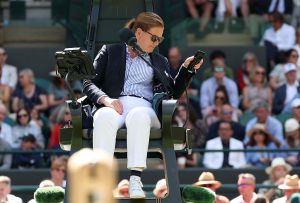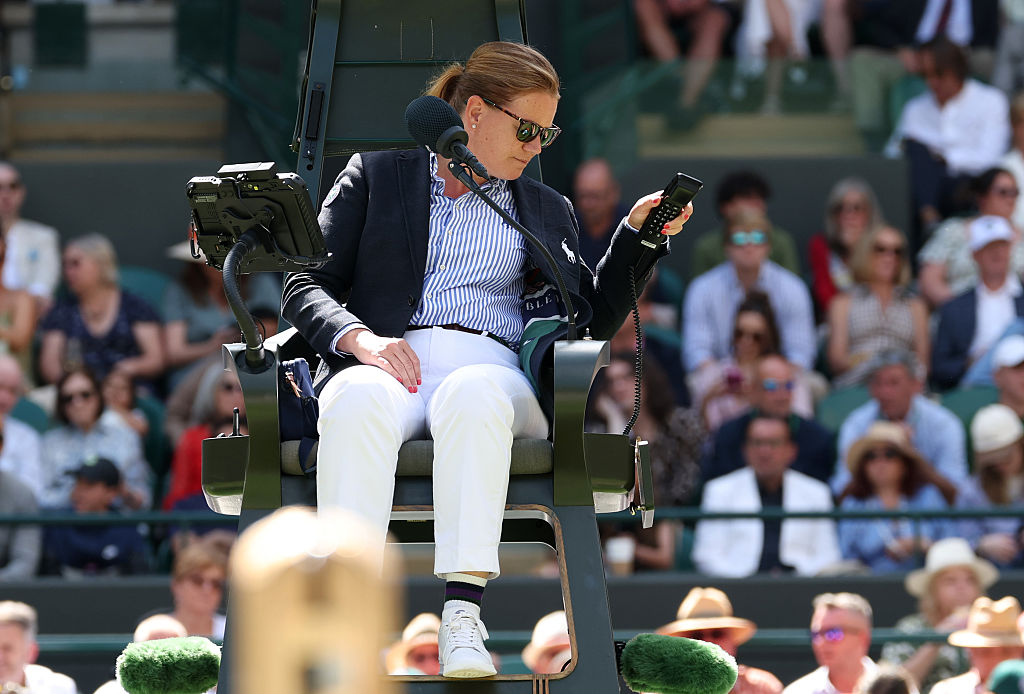Here I am, a human, recommending Kyle Chayka’s book about the negative impact of algorithms on our culture. Hopefully that will calm him down a bit, because he worries a lot, possibly far too much, at least as it seems to someone who is less online.
Chayka is a staff writer at the New Yorker and he is concerned about the effect of the Filterworld, his word for the “network of algorithms that influence our lives today, which has had a particularly dramatic impact on culture and the ways it is distributed and consumed.” He is referring to the songs Spotify cues up, the films Netflix suggests, the stories Facebook feeds its users, the broken flush of TikTok videos. They all use algorithms which calculate what grabs our attention and give us more of it, neglecting the “veggies” of more nourishing content. We are Homer Simpson in hell, hooked up to the endless doughnuts machine — and, like Homer, we lap it up.
From an audience perspective, the fear is that we will end up in a place of shallow, short-term satisfaction, culturally fulfilled. Chayka also worries about the impact on creators, who might be encouraged to converge on what pleases the algorithms. The combined result, he says, is the “pervasive flattening” of culture: “By flatness I mean homogenization, but also a reduction into simplicity: the least ambiguous, least disruptive and perhaps least meaningful pieces of culture are promoted the most.”
He uses “the generic coffee shop” as an example, describing his visits to Kyoto, Berlin, Beijing and Reykjavík, where his phone directed him to independent coffee shops that were all the same, despite no head office controlling them: white tiles, industrial-looking furniture, “hanging pendant lamps fitted with Edison bulbs.” He says the “strict sameness surpassed the usual indicators of globalization,” blaming the algorithms for harmonizing people’s tastes.
That might be true: Chayka is the expert. But to a non-American it seems to be exactly globalization, specifically Americanization, an acceleration of the cultural hegemony many of us were used to long before Filterworld’s algorithms. Global platforms have enabled American culture to spread more quickly, New York’s trends followed minute to minute by people in Sheffield or Tokyo or Reykjavik, but those trends spread before the internet. The algorithms might be a better mallet, but it is still America flattening global culture.
Like Chayka, I once worried about the impact of algorithms on culture, but his book, paradoxically, reassured me. A young journalist has written a culturally rich book containing intelligent, patient thoughts about global systems, and while he frets about the flattening of culture he references Brian Eno, the Hong Kong director Wong Kar-wai (“one of my favorite film-makers”), Haruki Murakami and “a retrospective of the French surrealist artist Meret Oppenheim.” He is culturally unflattened, despite his internet habit.
Towards the end of the book, that habit seemed to be revealed as the more pressing problem. Chayka describes taking a three-month break from his “feeds,” deleting the apps and logging out of websites:
My thumb itched for swiping, and my brain went through withdrawals from not having the constant onslaught of information. The symptoms were akin to the physical manifestations of anxiety: nervous twitching, short temper, general discomfort.
Finally clean, he reflects on the etymology of the word “curate,” a caretaker of souls, before interviewing a human “curator” for the classic films website Criterion — “a hyper-curated version of Netflix’,” Chayka calls it. The curator compares herself to a programmer at an arthouse cinema delivering the kind of films her audience wants. Chayka writes: “It’s a vision of how the internet could work if we decided it should.” But Criterion is how the internet works, at least for those who choose to use it. It’s just that some people prefer watching Selling Sunset to an afternoon of silent classics by Josef von Sternberg.
Still on curation, he describes a car journey during which he “stumbled upon” a radio station. A DJ, who Chayka later interviews, was playing covers and B-sides, with each song linked to the next. It prompts Chayka to write: “DJs are curators, too — behind the playlist we could sense the deep expertise and sensitivity that it took to put it together.” Two thoughts: first, some DJs are terrible, far worse than any algorithm when it comes to narrowing taste; and second, yes, we know.
For someone like me, about a decade older than Chayka, moments in the book are like a nephew listening to the radio for the first time and shouting earnestly: “Wow, you’ve got to listen to this: this person keeps playing songs they’ve chosen, ones I haven’t heard before, they’re really good.” To which the response is: “Yes, it’s interesting isn’t it? You should have a look at the weekend paper. There’s a world of culture out there away from your phone.”
Chayka is a very good journalist and has clearly thought deeply about the subject. But as someone who grew up with crown green bowling frequently being the best thing on television, the further into the book I got the more I stopped worrying. It is fascinating and deeply enlightening, however, especially to be with such an engaging writer as he realizes that life is much more fulfilling if we step away from the slurry blast of algorithms.
This article was originally published in The Spectator’s UK magazine. Subscribe to the World edition here.


























Leave a Reply